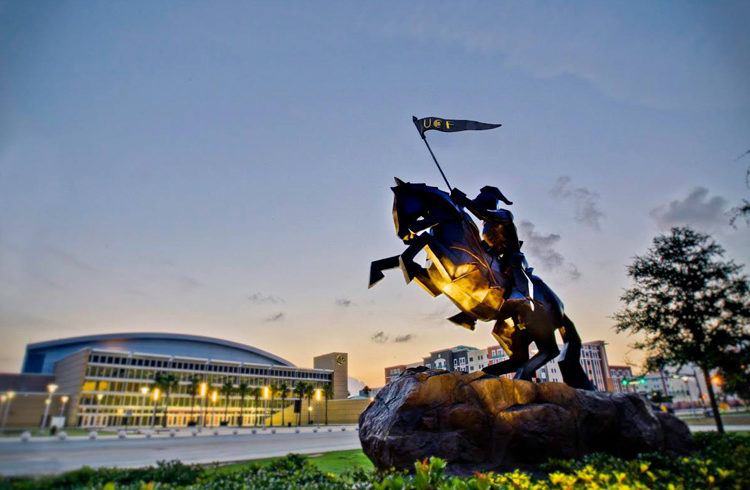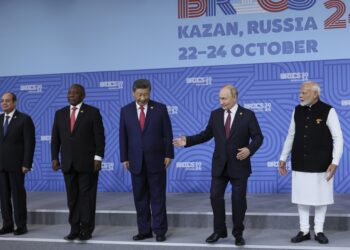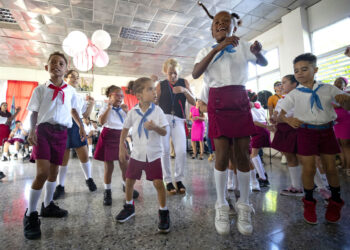The University of Central Florida (UCF) has been able to realize a desired project: creating for the first time in its history study programs in Cuba. The center of higher learning announced this on its website, while noting its will take advantage of the current moment in relations between the United States and the island to make this aspiration come true.
“We’ve been eager to develop and run study-abroad programs for UCF students in Cuba,” Oliver McSurley, assistant director of UCF Abroad, commented. McSurley participated in a UCF cohort of faculty and staff that traveled to Cuba earlier this year to scout the country for potential academic partnerships, including student-exchange and study-abroad programs, and long-term research collaborations.
As a result, the UCF is already promoting two pioneer lines for the island. The first, Journey Cuba, will allow enrolled students to visit Havana, San Diego de los Baños and Viñales, from March 11 to 19, 2017. As part of the visit students will learn about both countries’ relations over the past 50 years, plus aspects of Cuban society such as sustainability and technology.
The second program, called Cuba: History & Culture, will be hosted by the University of Cienfuegos and will last from May 5 to 14. The program will present subjects related to Cuban history and culture, diverse social values and the impact of cultural biases, and the students will also have the opportunity of visiting Havana.
The programs announced now also respond to the intention of promoting short trips, compared to the traditional exchanges that can cover a semester or even a year in another nation.
Cynthia Young, UCF vice provost for faculty excellence and international affairs and global strategies, commented, “These inaugural Cuba trips are among the short trips we have organized, and we hope will help our students understand the people and culture of a place so close to Florida,” and added that “Even a brief exposure can be transformative.”
These programs will allow second generation Cubans to connect with their heritage. This is the case of Alberto Sigarroa, a senior studying Latin American studies who will be the first of his immediate family to visit Cuba in 25 years.
“My parents have said if I have the chance, I should go for it,” said Sigarroa, born in the United States but brought up under the influence of Cuban culture. That’s why he yearns to see firsthand the gastronomy and other aspects of his parents’ place of birth, something he will now be able to experience if the program, as the UCF authorities expect, is carried out without mishaps.
Another advantage for young people like Sigarroa is economic feasibility. Its close proximity to Florida and low cost of living on the island make it more affordable than other nations. Both Cuba trips are less than $4,000 and include airfare, lodging, transportation in the country, visas, course credit and more.
Higher education has been one of the areas privileged in the talks between both countries after the reestablishment of diplomatic relations. Representative of the Cuban Ministry of Higher Education recently visited the United States, where they participated in the Summit of the Institute of International Education and where they signed memorandums of understanding with U.S. entities.
Another example of the joint work in that direction is the academic exchange program carried out on the island by the Consortium for Advanced Studies Abroad (CASA), which brings together prestigious U.S. universities.
Educational travel to Cuba expands a federal initiative to increase the number of U.S. students studying abroad in Western Hemisphere countries. The program aims to have 100,000 U.S. students studying in all Latin American countries by 2020. It also aims to bring more students to the United States for study-abroad programs.










